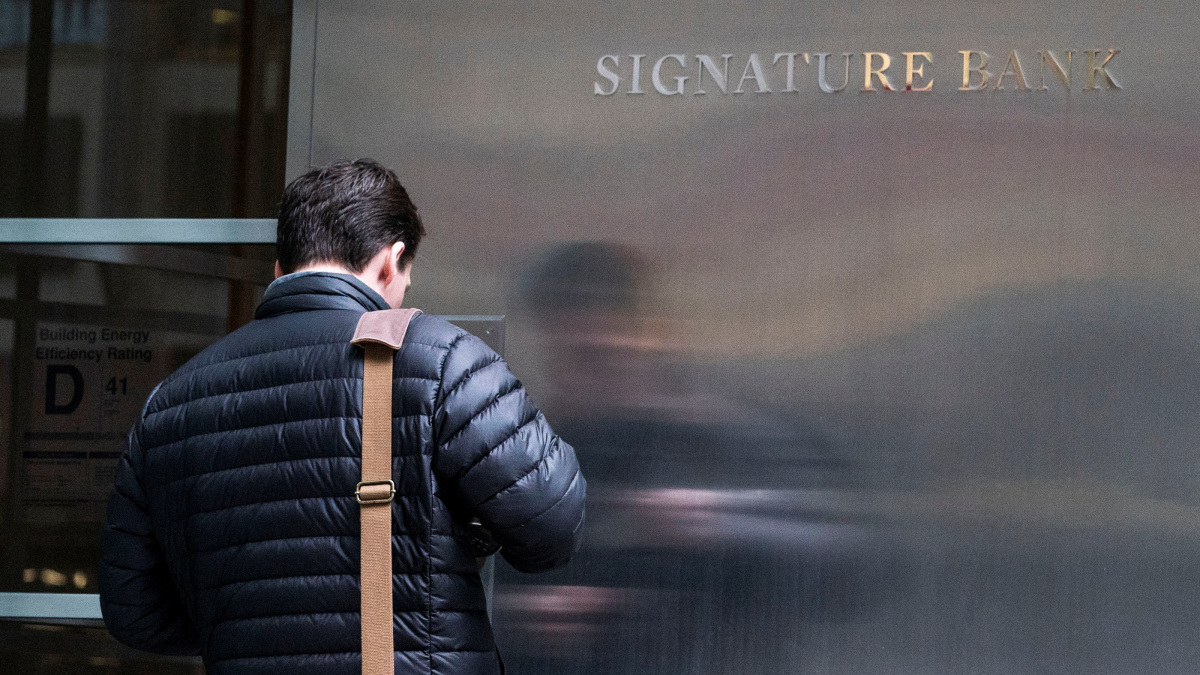Three founders and a startup investor said they hadn’t slept in 48 hours.
Asia’s tech leaders, half a world away from the chaos that’s engulfed Silicon Valley, are scrambling to assess the potential ramifications for an industry that’s always relied heavily on US capital and connections to supercharge growth.
Financiers and entrepreneurs packed the Shangri-La’s ballrooms during a global Wharton alumni gathering in Singapore, huddling in groups and tables over gourmet buffet meals with the latest news on Silicon Valley Bank’s spectacular implosion on Friday a main topic of conversation. In Mumbai, startup founders and investors at a conference talked about nothing else, exchanging rumors about which fledgling company might be the first to fall. In Shanghai, SVB’s local partner and joint venture issued memos within hours of each other, seeking to calm worries about their stability.
In the past days, the region’s tech luminaries and family offices have watched with a mix of fear and fascination at the meltdown that engulfed a decades-old bank that once carried $200 billion of assets. The collapse sent shockwaves through Asia as major investors and sovereign funds rushed to check the exposure of their portfolios and investees to the failed lender, according to people familiar with the matter.
At an investment firm that backs ByteDance Ltd., executives were glued to their screens as they monitored SVB’s stock price and news headlines on Thursday night in Beijing, before deciding overnight to pull their funds out of the bank.
An executive of Airbnb-style lodgings service Xiaozhu, warned by its venture backers, pulled over on an expressway to withdraw the company’s deposits over the phone, and succeeded, one of the people said. A representative for Xiaozhu declined to comment.
Others weren’t so lucky. An Indian founder told Bloomberg News he failed to retrieve company funds and is now left only with working capital. Another was scurrying to stop and reroute customer payments into his company’s SVB account, while also setting up new arrangements for salary payments. Three founders and a startup investor said they hadn’t slept in 48 hours.
“I’m not sure how many of you spent all of last night reading about Silicon Valley Bank and mapping out the implications?” Alp Ercil, whose Hong Kong-based fund Asia Research & Capital Management controlled $3.5 billion in assets as of January, asked at the Singapore event – a sea of raised hands responding to his question. “The more you read about the case the more you realise it’s a massive governance issue and it’s going to be a huge case study that hopefully Wharton will write on the G component of ESG.”
Asia’s biggest funds including Sequoia Capital China, Temasek Holdings Pte, ZhenFund and Yunfeng Capital reached out to their portfolio companies to gauge how much exposure they have to SVB, according to the people, who asked not to be identified discussing a private matter. A Sequoia Capital China representative said the company couldn’t immediately comment, while ZhenFund didn’t respond to a request for comment during non-business hours. Temasek said it doesn’t have any direct exposure to SVB.
Yunfeng said it notified teams to do a quick internal inquiry into potential exposure to SVB and warned portfolio companies to take action to avoid risk. Yunfeng itself doesn’t have deposits with SVB.
“The impact of the SVB incident on the technology industry should not be underestimated,” analysts led by Liu Zhengning at China International Capital Corp. said in a note. Deposits are crucial for tech startups because they generally require a lot of cash to pay for hefty expenditures including research and development costs and staff salaries, they said.
“If these cash deposits finally have to be impaired in the process of bankruptcy or restructuring, some tech firms may face high cash flow tension,” the analysts said. “The risks of bankruptcy should not be excluded.”
Finian Tan, founder of Singapore-based Vickers Venture Partners, said his company survived relatively unscathed. Only one of its portfolio companies in the US has deposits at SVB, totaling $2.5 million, according to Tan.
“More than half of our portfolio companies are American so we are lucky that our banks are diversified,” said Tan, who expects that most of the deposit will be recovered eventually.
SVB became the biggest US lender to fail in more than a decade after a tumultuous week that saw an unsuccessful attempt to raise capital and a cash exodus from the tech startups that had fueled the bank’s rise.
Regulators stepped in and seized it Friday in a stunning downfall for a lender that had quadrupled in size over the past five years and was valued at more than $40 billion as recently as last year.
“There was a mismatch between liquidity and risk, which made it unsustainable,” said Richard Ji, chief investment officer of All-Stars Investment Ltd. which has less than 1% of its capital with SVB. He added that this was an educational moment for the industry to reassess other unsustainable practices including building growth based solely on high-leverage, low margins or regulatory arbitrage.
The move by California state watchdogs to take possession of SVB and appoint the Federal Deposit Insurance Corp. as receiver adds to the turmoil at smaller lenders caused by the US’s rapid interest-rate increases. Just days earlier, Silvergate Capital Corp. announced it was shutting its bank down, spurring a broader selloff in industry stocks.
In Asia, the fear is no less palpable.
SVB’s troubles are raising concerns particularly in China because the joint venture has been aggressively lending to startups and funds that can’t borrow from traditional banks, according to people familiar with the matter.
SVB set up its local arm, SPD Silicon Valley Bank Co., in 2012, and offers several banking products and services in China, including working capital and trade finance, according to its website. While the venture has sought to reassure its clients and portfolio companies, the extent of the damage for now remains unclear.
And while the direct impact to Asia is limited because of SVB’s focus on Silicon Valley, the collapse is set to affect the banking industry’s credibility.
“This is a specialist bank. So fundamentally it shouldn’t affect Asia,” said Vickers’s Tan. “But confidence or the lack of it is contagious.”
(Except for the headline, this story has not been edited by NDTV staff and is published from a syndicated feed.)
Featured Video Of The Day
RRR At Oscars 2023: Naatu Naatu Supremacy – Blockbuster Hit Wins Best Original Song






